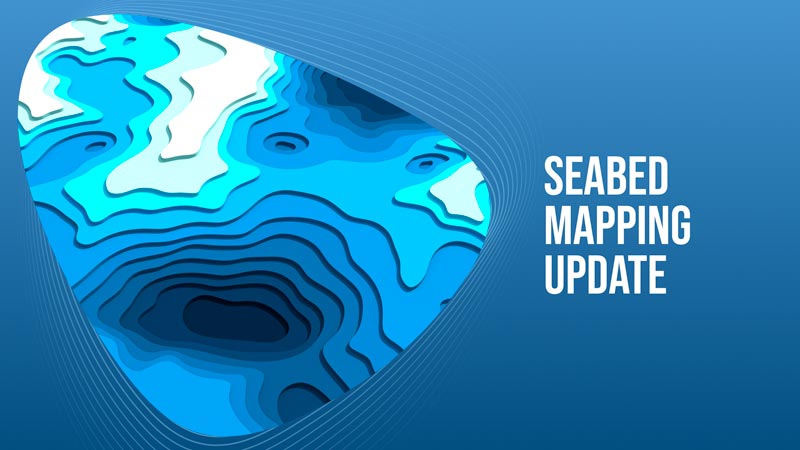
It is said that we have more thorough maps of the Moon and Mars than of our ocean floors here on Earth. While ocean exploration has been going on for centuries, the mapping of the seabeds is still somewhat of a recent idea.
Being able to see and have a map of the seafloor is crucial to making sure that the SeaPod is a safe home to live in. These technologies use sonar, LiDar, and cameras to create a 3D image that shows exactly what the seafloor looks like. We will likely use a submersible or surface vessel instead of a tethered aerial drone.
The thing about working in the ocean is that it can be very deceiving. On land, we can easily see when there is a hill, a ditch, or some kind of elevation change. But since the surface of the ocean is almost always at the same level no matter what the terrain below it looks like, it is important to have these maps so that we can ensure that the area is suitable and safe for a SeaPod.
We will deploy this technology in potential areas where we could build a community of SeaPods. The 3D maps and images will allow us to survey the area and have a better idea of the “land” that we will be building above.
Having these 3D maps of the seabeds surrounding your SeaPod will give the occupants a bit of peace of mind when they are swimming, paddleboarding, or kayaking in the area. That unknown “abyss” below you won’t be so bad if you know exactly how deep it is and exactly what is there.
Mapping the seafloor will also be important when deploying our 3D printed coral habitats. We can use these technologies to make sure that the seafloor is suitable to sustain coral growth before we start the process.
We are working with several companies who specialize in this technology and we are currently weighing our options of using commercially available products or building our own. As always, if you have expertise in drones, marine robotics, or software, then feel free to reach out if you would like to help us with this project.
You can read more about the work that we have been doing and our plans for this project here in our Wiki.














